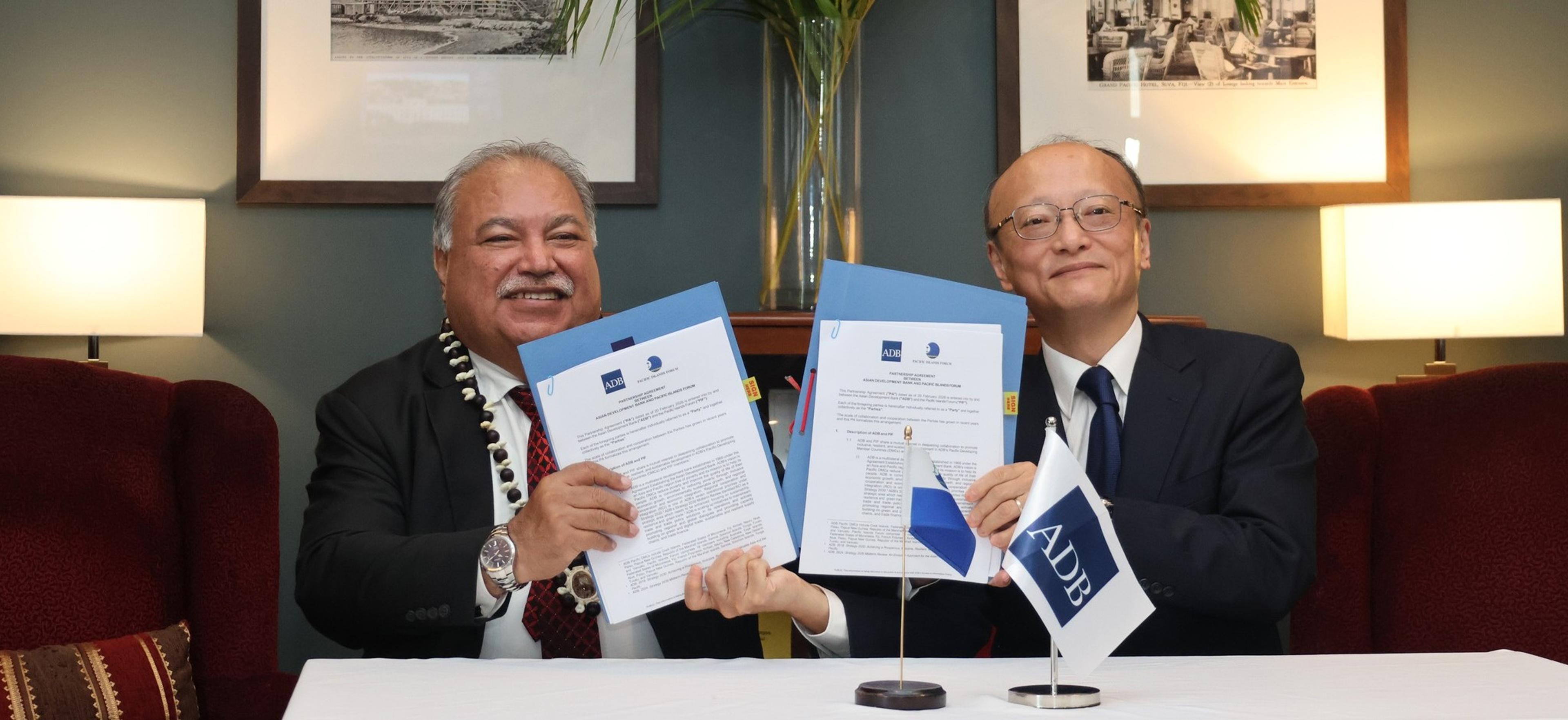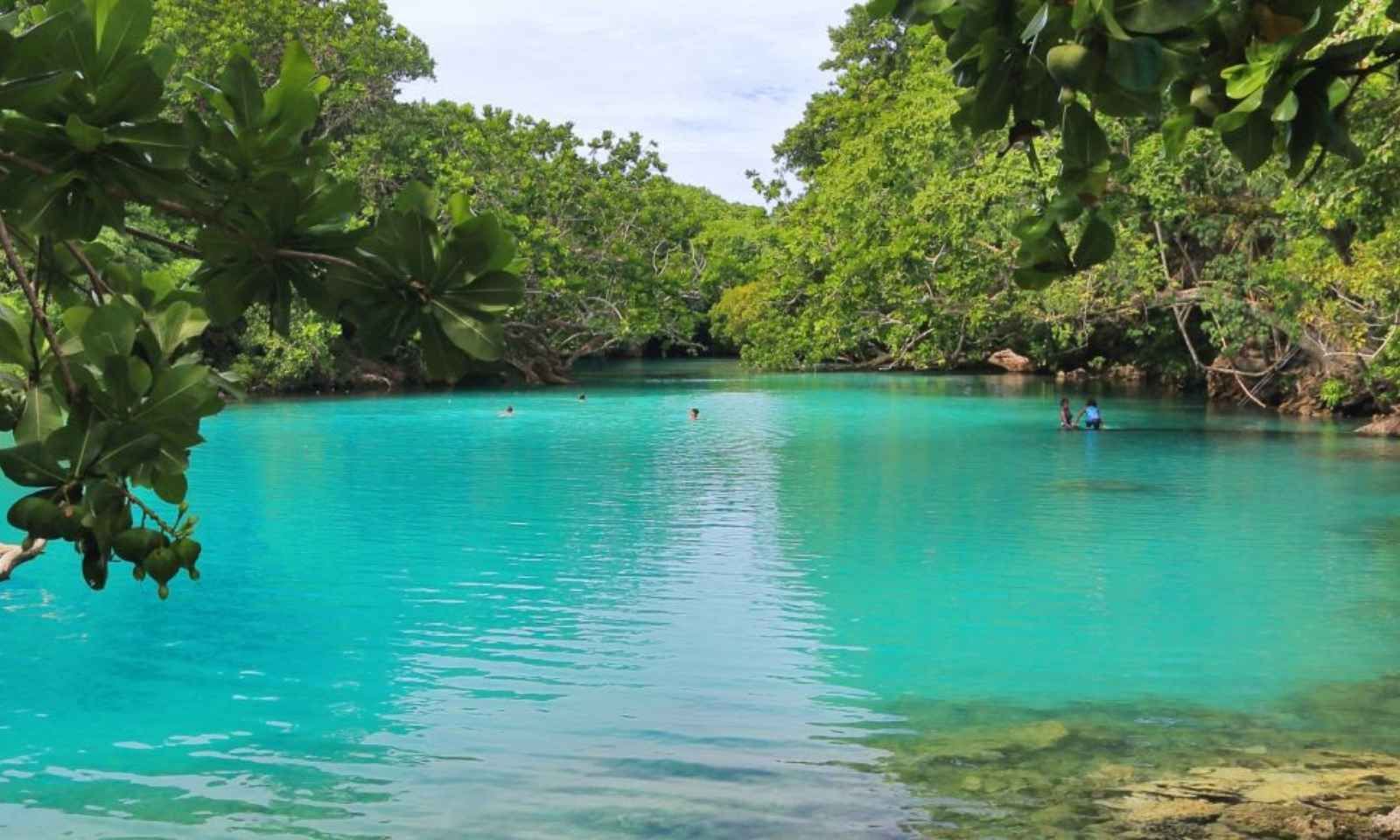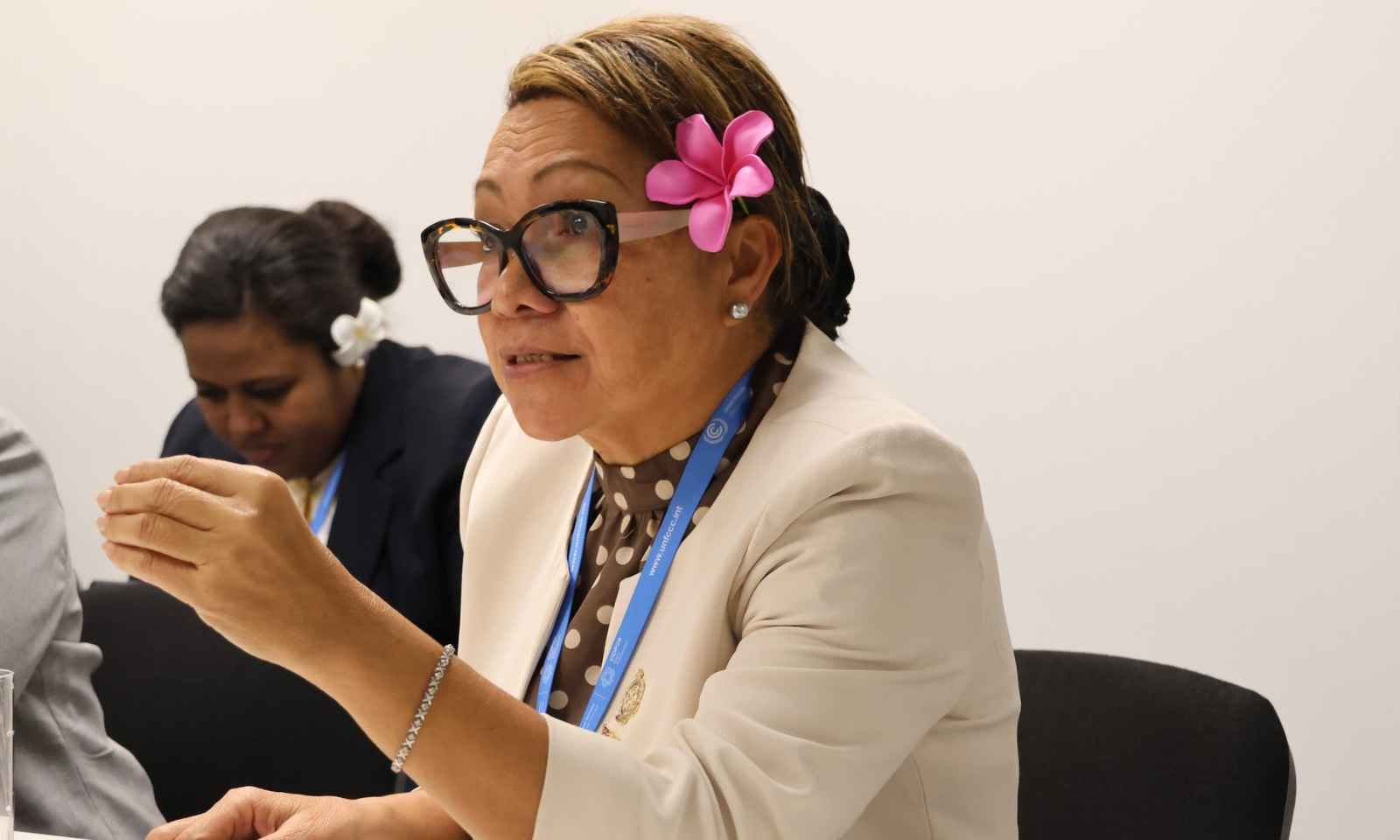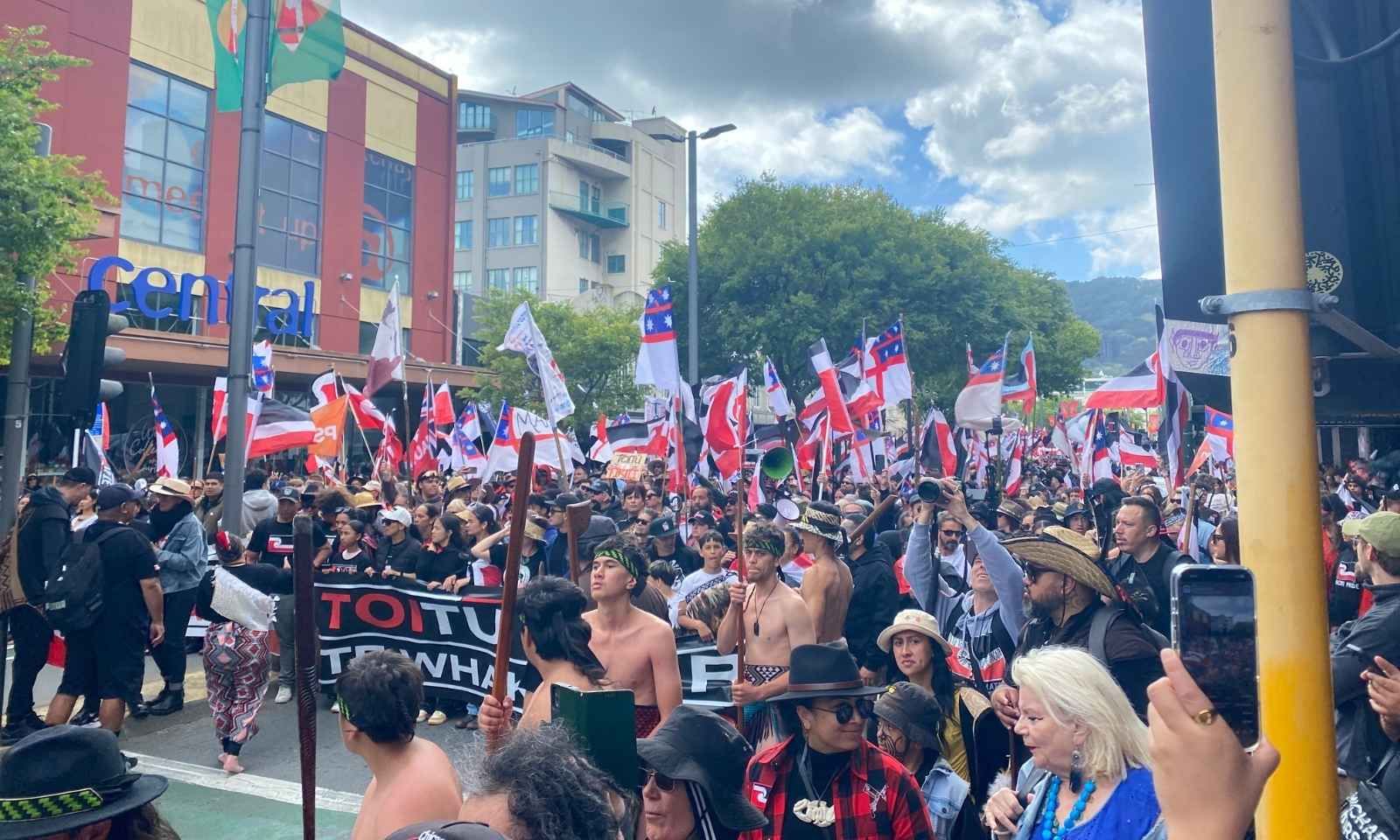

Threatened by erasure from climate change, Tuvalu is creating its digital backups, striving to preserve as much as possible.
Photo/BBC.
‘Unfortunate, unfair, unjust’: COP29 faces backlash
The Green Party, Pacific leaders, and youth activists have criticised wealthy nations for their inadequate financial commitments following the climate conference in Azerbaijan.


Asian Development Bank expands Pacific footprint with Suva hub and new PIF agreement

Time for an Indigenous State of Origin? The All Stars game shows who really powers the NRL



Asian Development Bank expands Pacific footprint with Suva hub and new PIF agreement

Time for an Indigenous State of Origin? The All Stars game shows who really powers the NRL

Outcomes from COP29 continue to be criticised, with one Green Party co-leader calling the climate conference results “'deeply unfortunate, unfair, and unjust”.
The 29th Conference of the Parties of the UNFCCC ended last week in Baku, Azerbaijan.
The meeting focussed on climate finance gaps and advancing key agenda items.
However, many believe COP29 fell short of expectations, with developed nations pledging only US$300 billion (NZ$154b) annually by 2035 to assist developing nations - a figure well below the US$1.3 trillion (NZ$2.2t) requested.
At her first United Nations climate summit, Green Party co-leader Chlöe Swarbrick told William Terite on Pacific Mornings that COP29 failed to acknowledge the inequalities within the global economic system.
She said wealthy countries thrived historically by exploiting nations in the global South, a reality that was neither fair nor appropriately addressed.
Watch Chlöe Swarbrick’s full interview via 531pi’s FB below.
“It's the same kind of thing that we see play out locally where we normalise the fact that these inequalities and injustices are ‘just the way that things are’, and I saw that play out on the international stage,” Swarbrick said.
“As long as we treat justice as charity and as something that is open to discretion and choices as opposed to a moral imperative, then we're on the wrong track.
“My key takeaway was just how deeply unfortunate, unfair and unjust.”
‘It’s like they don’t see us’
Gabrielle, a climate youth activist from Vanuatu who attended COP29, shared Swarbrick’s sentiments, saying that, despite being “right in front of them”, developed nations appeared to ignore the pleas of vulnerable countries like hers.
“It's like they don't see us… every year, we come together for these big meetings, and it's the same thing each time and nothing's changing.
“Something in that system needs to change because we need to see some change real soon.”
Increasing cyclones, rising sea levels, and higher temperatures already impact Vanuatu, leading to loss of livelihoods and food security.

According to the “Vanuatu’s climate: Current and future variability and change” report, since the pre-industrial period (1850-1900), the country’s annual average temperature has increased by approximately 0.7°C. Photo /Website/myvanuatu.com.au
“I don't think it's fair that those big countries, that emit the most greenhouse gases and aren't seeing the impacts of climate change yet, get to have as much power as they do over these types of decisions,” she said.
“We're not asking for the money because we want it. We're asking for it because we need it. We need adaptation and mitigation and we need it now.”
Pacific nations begging to survive at COP29
The conference also experienced tensions over climate-related trade policies and fossil fuel discussions, with no commitments made to phase out the latter or expand the renewable energy capacities discussed at COP28.
President Ilham Aliyev of the host nation also criticised “Western fake news” about Azerbaijan’s emissions, referring to oil and gas as a “gift of God" and adding that nations should not be blamed.
Pacific leaders like Niue’s Climate Change Minister, Mona Ainuu, expressed frustrations, saying they were "made to come here and almost beg to survive". She emphasised the urgent need for concrete outcomes and financial support.
Swarbrick said affluent nations that have historically exploited less developed countries are “turning their backs” on them as they strive for progress.
She also emphasised the refusal to address the inequities and injustices caused by these historical exploitations.

Mona Ainu'u. Photo/Pacific Island Forum Facebook.
“I saw some Pacific Island leaders making it pretty blunt that they saw this effectively as a betrayal, and I think that's a pretty fair reflection,” Swarbrick said.
Compounding hīkoi mō Te Tiriti
Referring to the hīkoi mō Te Tiriti or March for the Treaty, which attracted over 40,000 participants, Swarbrick said she had never witnessed such unity in her seven years of politics.
She said the movement highlights a recognition of and response to “economic injustices, climate crisis, and marginalisation of indigenous wisdom and peoples”.
She hopes the same spirit of mobilisation continues to drive sustained political engagement, adding that whether in Parliament or the UN, “politics belongs to those who turn up”.
“People turning up unapologetically and organising and mobilising en masse to change those systems is the only way that we are going to be able to get change.
“It is not enough just for us to say this thing isn't good enough. Therefore, I'm not going to participate in it, and I'm going to sit on my high horse or my ivory tower and just kind of throw stones.
“We have to change it because the reality is that if we don't, then it continues to perpetuate all of those issues and actually not resolve these problems for us.”

Scenes from hīkoi mō Te Tiriti, one of New Zealand’s most contentious times in history. Photo/PMN News/William Terite.
‘It’s our future that’s in jeopardy’
Gabrielle, also a NextGen youth ambassador of Save the Children Vanuatu, called for phasing out fossil fuels, which she identified as the “root problem,” and emphasised the importance of including youth in the decision-making process.
She stressed that young people’s future would remain at risk until their perspectives are considered in shaping effective climate policies.
“Whether those impacts are negative or positive is really decided at these types of meetings like COP,” she said.
“We're the ones that are affected by the decisions that are made today - it’s our future that’s in jeopardy.
“It's our leaders’ jobs, but we need to come together so that they can hear our voices, and we need to unite so that they see how important this really is to us because it's our future that's at risk."